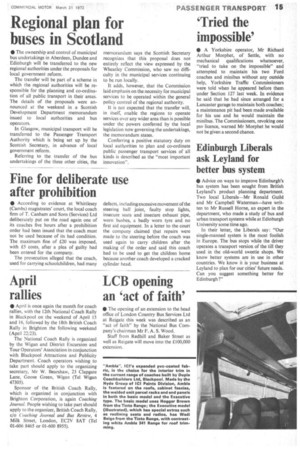Fine for deliberate use after prohibition
Page 17

If you've noticed an error in this article please click here to report it so we can fix it.
• According to evidence at Whittlesey (Cambs) magistrates' court, the local coach firm of T. Canham and Sons (Services) Ltd deliberately put on the road again one of its coaches five hours after a prohibition order had been issued that the coach must not be used because of its bad condition. The maximum fine of £20 was imposed, with £5 costs, after a plea of guilty had been entered for the company.
The prosecution alleged that the coach, used for carrying schoolchildren, had many defects, i nel uding excessive movement of the steering ball joint, faulty stop lights, insecure seats and insecure exhaust pipe, worn bushes, a badly worn tyre and no first aid equipment. In a letter to the court the company claimed that repairs were made to the steering before the coach was used again to carry children after the making of the order and said this coach had to be used to get the children home because another coach developed a cracked cylinder head.




















































































